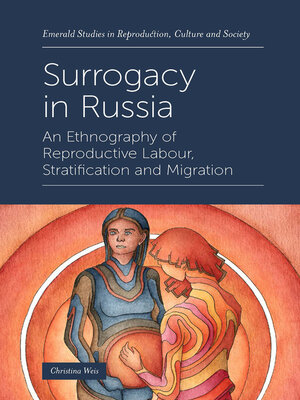Surrogacy in Russia
ebook ∣ An Ethnography of Reproductive Labour, Stratification and Migration · Emerald Studies in Reproduction, Culture and Society
By Christina Weis

Sign up to save your library
With an OverDrive account, you can save your favorite libraries for at-a-glance information about availability. Find out more about OverDrive accounts.
Find this title in Libby, the library reading app by OverDrive.



Search for a digital library with this title
Title found at these libraries:
| Library Name | Distance |
|---|---|
| Loading... |
This timely and fascinating feminist ethnography is the first of its kind to focus on commercial surrogacy workers in Russia and from other countries of the former Soviet Union. Examining surrogacy workers' reproductive labour, and experiences of stratification and migration, the study presents innovative insights into current research on global surrogacy practices and travels for assisted reproduction. It links to wider fields of studies, such as ethnicity, feminism, women's and gender studies in the post-Soviet sphere.
Weis expertly brings together rigorous ethnographic research, feminist debates and anthropological theory to explore the attributed significance of origin, citizenship, race, ethnicity and religion, and the cultural framing and social organization of surrogacy as an economic exchange; thereby challenging and contributing to the discourse of surrogacy as a gift, a labour of love, a maternal sacrifice or work.
Tracing surrogacy workers' journeys for surrogacy work across Russia, Weis introduces geographic and geopolitical stratifications as two new lenses of stratified reproduction to analyse how surrogacy in Russia builds on and propels surrogacy workers' mobility and results in reproductive migrations.
Given the rapid global increase in the use of surrogacy and its increasingly internationalised nature, Weis's research has implications for surrogacy users, medical practitioners and regulators, as well as researchers concerned with (cross-border) surrogacy, reproductive stratifications and reproductive justice.
Shortlisted for the Foundation for the Sociology of Health and Illness Book Prize 2022







